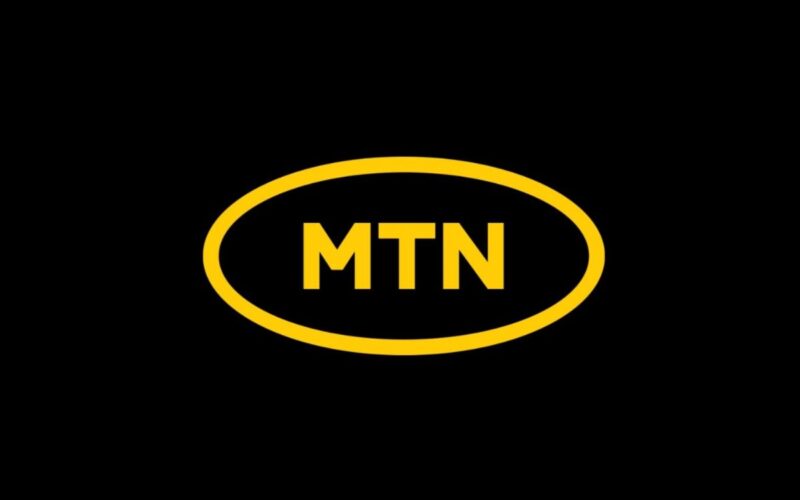MTN Nigeria, the nation’s largest telecommunications provider, experienced a dramatic rise in its stock value following the Nigerian government’s decision to approve a 50% increase in telecommunications tariffs. The move announced to address the economic pressures of naira depreciation and escalating inflation, has triggered significant market activity, as reported by Bloomberg.
The tariff adjustment is part of the government’s broader strategy to stabilize the telecommunications sector amidst challenging economic conditions. The devaluation of the naira, coupled with surging inflation rates, has severely impacted operating costs for telecom operators, prompting this intervention to ensure industry sustainability.
At the close of trading on the Nigerian Exchange (NGX) in Lagos, MTN Nigeria’s shares surged by the maximum allowable daily limit of 10%, closing at 256.30 naira per share. This marks a notable recovery for the telecom giant, whose stock had faced pressures in recent months due to economic headwinds.
In contrast, Airtel Africa, a major competitor, saw no significant change in its stock price, which held steady at 2,156.90 naira. Analysts suggest that Airtel Africa’s broader geographic footprint, spanning multiple African markets, may have buffered its Nigerian operations from the full impact of domestic economic shifts.
Market Reaction and Investor Sentiment
The surge in MTN Nigeria’s stock underscores investor confidence in the company’s ability to leverage the new tariff structure to offset rising operational costs and maintain profitability. The approved tariff increase is expected to provide telecom operators with the financial flexibility needed to sustain service delivery, invest in infrastructure, and enhance customer experience.
“This is a critical moment for the Nigerian telecom sector,” said a market analyst at Vetiva Capital. “The tariff increase, while significant, reflects the realities of operating in an economy facing dual pressures from inflation and currency devaluation. MTN’s ability to rapidly adapt to these changes has been well-received by investors.”
Impact on Consumers and Industry Dynamics
While the tariff hike has buoyed MTN’s stock, it raises questions about its potential impact on consumers. With the cost of living already high due to inflation, the increase in telecom tariffs may strain household budgets, particularly for lower-income Nigerians who rely heavily on mobile services for communication, business, and access to information.
The Nigerian Communications Commission (NCC) has assured the public that the tariff adjustments will be implemented with transparency and fairness, prioritizing affordability while ensuring the sustainability of telecom operators. The NCC’s recent issuance of the Guidance on Tariff Simplification, 2024 aims to simplify pricing structures and protect consumers from excessive charges.
Broader Economic Implications
The government’s decision to increase telecom tariffs reflects its ongoing efforts to navigate a challenging macroeconomic landscape. The devaluation of the naira earlier this year, coupled with inflation reaching multi-decade highs, has put significant pressure on businesses and consumers alike. The telecom sector, contributing between 14% and 16% to Nigeria’s GDP, remains a critical driver of economic activity and innovation.
Read also: NCC Approves Limited Tariff Adjustments to Ensure Telecom Sector Sustainability
By supporting telecom operators with this tariff adjustment, the government aims to sustain the sector’s contribution to the economy while ensuring that service providers can continue to invest in infrastructure, expand network coverage, and improve service quality.
MTN’s Resilience and Outlook
MTN Nigeria’s performance on the stock market demonstrates its resilience and strategic positioning in the industry. The company’s proactive measures to navigate Nigeria’s volatile economic environment, combined with its commitment to innovation and customer-centric solutions, have solidified its leadership in the telecom space.
As Nigeria grapples with the economic challenges posed by naira devaluation and inflation, the telecom sector will play a pivotal role in driving digital transformation, financial inclusion, and economic recovery. MTN Nigeria’s ability to adapt to these changes while maintaining investor confidence will be a key factor in shaping its future growth trajectory.
For now, the approved tariff increase has provided a lifeline to telecom operators, ensuring their sustainability while creating opportunities for further investment and innovation in the sector. Whether this translates into long-term benefits for consumers and the broader economy remains to be seen.












